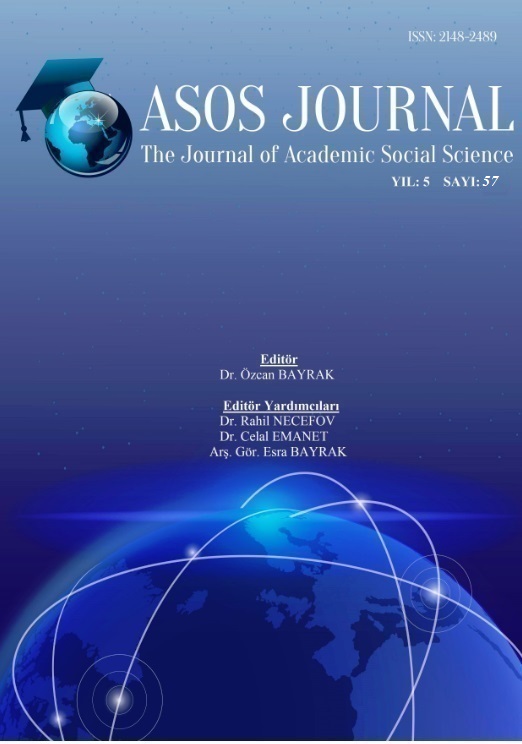Author :
Abstract
Rüyalar, varoluşundan beri insanoğlunun hayatında önemli bir yer tutmuş ve aklını meşgul etmiştir. İnsanlığın binlerce yıllık macerası boyunca birçok kişi, inanç sistemi ve düşünce akımı uykuda yaşanan bu sembolik düş dizilerini farklı açılardan ele almış, derinlemesine incelemiş ve bu rüyaları görme sebebine cevap bulmaya çalışmıştır. Uykuda ortaya çıkan bu görüntüler, her türlü din, dil, ırk ve toplumsal sınıfa mensup insanların ortak paydasıdır. Diğer kültürler gibi Türk kültür ve edebiyatında da rüya motifi özellikle destan, efsane, halk hikâyesi, masal ve menkıbe gibi türler içerisinde sıkça görülmektedir. Rüya bu türler içerisinde kurmacayı farklı bakımlardan/açılardan etkileyen bir motif olarak sembolik bağlamlarda karşımıza çıkmaktadır. Bu çalışmada, Mevlevî geleneğine mensup Ahmet Eflâkî’nin, tercümesi Tahsin Yazıcı tarafından yapılan Farsça eseri “Âriflerin Menkıbeleri” (Menâkıbü’l-Ârifîn) adlı eserdeki rüyalar ve işlevsel yansımaları incelenecektir. Böylece incelenen eserden hareketle rüyanın menkıbelerdeki durumu tartışılacaktır.
Keywords
Abstract
Dreams have kept an important place in human life and have been occupied people's minds since its existence. During the thousands of years of humanity's adventure, many people, belief systems, and thought streams dealt with different angles these symbolic sequences of dreams, studied in depth and tried to find answers to the reason for seeing these dreams. These images, which arise in the sleep, are the common denominator of all kinds of religions, languages, races and social classes. In Turkish culture and literature, such as other cultures, the dream motif is often seen in genres such as sagas, myths, folk stories, tales, and hagiographies. The dream arises in symbolic contexts as a motif in these species that affects the fiction from different angles. In this study, the dreams and functional reflections are examined in Ahmet Eflâkî’s book name “Menakıbü’l-Ârifîn” translation by Tahsin Yazıcı. Thus, with the work examined, the situation of the dream will be discussed.
